Submitted by Mary Napoli and Angela M. Wiseman, Co-chairs, Early Career Award Committee In our rapidly evolving professional landscape, we continue to advance our collective body of research through the connections forged through CLA. It is this dynamic cycle of research combined with our networking opportunities that informs new directions and possibilities. With this in mind, we want to celebrate the contributions of our CLA Early Career Award Recipients from 2017 to the present. As you will read, they have continued to impact the field with their innovative and timely scholarship. In this blog post, we share their responses to open-ended questions that highlight their recent contributions to children’s literature and future projects on the horizon. They were also invited to reflect on how readers and educators will leverage their research in actionable and transformative ways. Finally, everyone was asked to share a photo of something that matters to them. 2023 CLA Early Career Award RecipientJOSH COLEMAN
2019 CLA Early Career Award RecipientNOREEN NASEEM RODRIGUEZ
2017 CLA Early Career Award Recipient
ANGIE ZAPATA
Mary Napoli is the former co-chair of the 2023 Early Career Award Committee. She is an associate professor of education and reading at Penn State Harrisburg. Angela Wiseman is a former CLA Board Member and co-chair of the 2023 Early Career Award Committee. She is an associate professor of literacy education at North Carolina State University. By Adam Crawley and Elizabeth Bemiss on behalf of the CLA Diversity, Equity, and Inclusivity CommitteeWe are living and navigating in troubling times. Across the country, educators (e.g., K-12 teachers, librarians, teacher educators, etc.) experience censorship of and challenges to texts that center historically marginalized races, ethnicities, sexual orientations, gender identities and expressions, and other ways of being. In several states (e.g., Florida, Georgia, Utah), legislation explicitly restricts such representations and discussions in K-12+ schools. Simultaneously, cities across the country are supporting newcomers bussed from the U.S.-Mexico border, and schools and libraries specifically are trying to aid these families with daily needs (e.g., food, shelter) and other aspects (e.g., school transitions, providing books in Spanish). Meanwhile, unrest in Africa, the Middle East, and Ukraine continue to weigh heavily on many of our minds and hearts; mass shootings in schools and other public settings remain prevalent; and the upcoming 2024 U.S. Presidential election causes increased tension across politically opposed ideologies. In the midst of all of this, we want to retain hope. We also know that reading and discussing children’s literature with youth can be vital for promoting social justice. To support educators’ on-going work - and in the spirit of Valentine’s Day week - we asked 2023 and 2024 CLA Diversity, Equity, and Inclusivity (DEI) Committee members to share about books they “love” for their representation and ability to foster DEI work. While we recognize that no single book can address all of the world’s current complexities, we hope the recommendations in this list are helpful resources and provide a sense of solidarity for your own contexts.
Jo Jo Makoons Series by Dawn Quigley, illustrations by Tara Audibert (Heartdrum) Native Americans have a great love of laughter. In this series, author Dawn Quigley (Turtle Mountain Band of Ojibwe) introduces a spunky seven-year-old named Jo Jo Makoons who lives on an Ojibwe reservation. Jo Jo’s worldview is truly one-of-a-kind as she learns to be friendly, fancy, and imaginative. I love Jo Jo’s hilarious adventures, which are similar to a younger Amelia Bedelia experience. Readers will meet Jo Jo’s Ojibwe family and community (and her pet cat Mimi) as she moves through contemporary, everyday events. Illustrator Tara Audibert (Wolastoqiyik First Nation heritage) adds her comical, cartoon-style artwork to each story in the series. First and second-grade readers will make connections with Jo Jo’s realistic experiences, her feelings in those situations, and learn how she solves her problems. These books are upbeat and humorous, making them a very enjoyable read. (contributor: Andrea M. Page Hunkpapa Lakota)
These poignant and powerful texts that are well loved by CLA DEI committee members illuminate many issues surrounding diversity, equity, and inclusion. These texts speak to issues of race, gender, heritage, and sexual orientation, to name a few, and could be used in the classroom to evaluate the impact of stereotypes or assumptions, to face and dismantle racism, to highlight the value of kindness, or to provide a realistic portrayal of diversity for readers to see themselves and their lived experiences represented in texts. As delineated in the CLA Bylaws, the DEI committee encompasses a steadfast commitment to diversity, equity, and inclusivity within CLA: "The Diversity, Equity, and Inclusivity Committee Chair and members shall help ensure CLA’s commitment to issues of diversity, equity, and inclusivity. The committee shall help create and/or review CLA policies and position statements shared with CLA members and/or the greater public. The committee shall work with membership and nominating committees for recruitment as well as help distribute calls for CLA-related applications. Committee members shall also serve as resources for CLA Standing Committee Chairs when they are developing materials and programs." For more information about the DEI committee, please contact committee chairs Adam Crawley ([email protected]) or Elizabeth Bemiss ([email protected]). Adam Crawley is an Assistant Teaching Professor in the School of Education at the University of Colorado-Boulder. He serves as the 2023 and 2024 CLA DEI Committee chair. Elizabeth Bemiss is an Associate Professor in the School of Education at the University of West Florida. She is a CLA Board Member and chair of the 2023 and 2024 CLA DEI Committee. By Jennifer Slagus and Callie Hammond There is something endlessly energizing about reading new things—whether it’s an anxiously-awaited release, a long-term tenant on your TBR-list, or the research of an emerging scholar (maybe we’re a little biased on that last one). Members of the CLA Student Committee are privileged to do just that: to read exciting books and write about all the exciting ways they can be used in classrooms to improve the lives and learning of our students. Much of our work as early career researchers highlights critical pieces of children’s literature that attend to the social, cultural, and political contexts of our real and literary worlds. We want to share a few recently published, award-winning books relevant to our doctoral research that highlight young peoples’ bravery and acts of resistance. All three are critical, impactful reads worth embedding in each of our classrooms in 2024. Jennifer Slagus I’m a huge fan of books by authors who share a lived reality with their characters. As a neurodivergent researcher, I strive to highlight middle grade novels that help to restory the perceptions of who neurodivergent people are (and who they’re allowed to be). There have been many fabulous authors in the past five years or so who have contributed books that do just that. But one author sticks out to me as an exceptional advocate for neurodivergent acceptance: Sally J. Pla. She’s an autistic middle grade author and the founder of A Novel Mind, a website that centers mental health and neurodiversity representation in children’s fiction. ANM has been a gold mine for my research. Not only does it feature a vibrant blog and a ton of educator resources, but it also has a database of over 1,150 children’s books featuring mental health and neurodiversity representation.
Callie Hammond As a middle school teacher for ten years, I often utilized picturebooks to engage my students and to teach discrete skills, usually about grammar, and to illustrate writing techniques. These lessons had varying success—sometimes the 7th graders would be open to reading a picturebook, other times they rolled their eyes and refused to participate. The most successful picturebooks that I ever brought into my classroom though had nothing to do with grammar or writing, they had to do with Anne Frank. I taught her diary to 6th graders who, unless they were readers themselves and had already discovered World War II fiction, had no knowledge of the Holocaust or how Jews were treated in the years preceding the war. My Anne Frank picturebook collection featured many books about Anne (there are a lot of them out there), but also books that explained significant parts of the war: the night of broken glass, Jewish resistance, children in concentration camps, children who also hid during the war, and many others. Now, as a doctoral student in English education, I have come full circle to analyze the stories of Jewish female protagonists in YA novels about World War II, and representations of the Holocaust in picturebooks. Two of these picturebooks were published in 2023 and feature stories and information that our students need and can learn from. Both books were also just named Notable Books for a Global Society Award for 2024. As is fitting for a book about a traumatic historical event, both are nonfiction and have extensive back matter to explain the stories. Utilizing both of these picturebooks in the classroom with older students can prep them for the heavier history or readings a teacher might soon introduce. They also provide picture evidence of hardships and bravery without being too macabre. Jennifer Slagus is a doctoral candidate at Brock University in Ontario, Canada and Coordinator of Research & Instruction at the University of South Florida Libraries. Jennifer’s doctoral research focuses on representations of neurodivergence in twenty-first century middle grade fiction. Callie Hammond is a doctoral student at North Carolina State University in Raleigh, North Carolina. Callie’s doctoral research focuses on accessing historical knowledge when teaching literature that involves the Holocaust and using critical content analysis to analyze and understand representations of the Holocaust in children’s picturebooks. CLA Student Committee Members
By Jessica WhitelawLast week I was able to visit the long-awaited Faith Ringgold exhibit, American People, at the New Museum in New York. Many know Ringgold from her book Tar Beach, but this retrospective - her first - features Ringgold as artist/organizer/educator and showcases paintings, murals, political posters, sculptures, and story quilts that span the Harlem Renaissance, the Black Arts Movement, critical feminism, and reach into the landscape of contemporary Black artists working today. After years of a relationship with the book version of Tar Beach, it was moving to stand in front of the original story quilt that the book is based on, this intimate everyday object upon which she wrote, painted, and stitched, to push the boundaries of white western art traditions and explore themes of gender, race, class, history, and social transformation.
Below is a protocol adapted from the steps of art criticism that can be used to support students in developing picturebook practices that engage critical literacy and inquiry. It can be used with Tar Beach, whose content is both accessible and complex enough to use with both younger and older readers. But it offers a flexible participation structure that teachers can use with any picturebook that has rich visual/verbal content. Like most protocols, it works best as a flexible tool not a prescriptive device. Picturebook Read Aloud Protocol Adapted from the steps of art criticism, this protocol provides a framework for sharing picturebooks that aims to cultivate a critical practice. It guides the reader through a process of looking closely to notice what they might otherwise overlook and to use what they know about words and pictures to analyze and make sense of what they see. The stages offer a helpful way to support students of any age through a process and unfolding of critical engagement that relies upon attention to specific details in the work to guide thoughtful engagement and response. The protocol is intended as a facilitation guide for teachers. Wording should be adjusted for the audience/age of the reader. LOOK CLOSELY Take inventory. Examine the cover of the book, the dust jacket and the endpapers. Look closely at the typography, the pictures, the words. Describe what you see and notice in detailed, descriptive language. ANALYZE Use what you know about picturebooks and design to analyze the words and the pictures. Look at the colors, the lines, shapes, textures. Try to determine the media the artist used to make the pictures. Examine the style of the language the writer used. Look for patterns, repetition, rhyme. Draw attention to the picturebook as a unique form of the book that relies on the synergy of the words and the pictures by asking how the words and pictures work together: What do the words tell you that the pictures do not? What do the pictures tell you that the words do not? What happens in between the openings? QUESTION Use questions together to probe and deepen. Stop and ask questions about pages that are visually and/or verbally rich or complex. What sense do you make of this page? How do you know that? Why do you think the author or illustrator chose to do it the way they did? What questions does the page raise for you, make you wonder about? CRITIQUE What do you think the author/illustrator is trying to do or say or show in this book? Who do we see in this book? Who is the audience for this book? Who do you think should read it? Whose voice/voices do we hear? Who do we not hear from? What ideas do you have about the topic/topics in the book? What do you think the storyteller in this book believes or thinks or wants us to know? What questions do you have about what the storyteller is saying and showing? What genre/category does the book belong to? What other work has this author and/or illustrator created and how is it similar to or different from this book? RESPOND After having looked closely at the book, what does this text mean to you? What does the story make you wonder about? How could this story mean different things? To you? To different readers? Additional Teaching Resources for Tar Beach Watch Faith Ringgold read Tar Beach Create a paper story quilt Listen to Faith Ringgold’s favorite songs Explore a Faith Ringgold Text Set:
For Older Readers: Watch the Ted Talk by Kimberlé Crenshaw on intersectionality Examine how Tar Beach explores identity and power at several intersections. Examine other artworks of Faith Ringgold such as her For the Women’s House mural at the Brooklyn Museum or her America series of paintings on the artist’s website Read Ringgold’s feminist artist’s statement from her memoir, We Flew Over the Bridge. Look for themes that connect across and examine how the different art forms allow the themes to be explored differently. Read other excerpts from We Flew Over the Bridge: The Memoirs of Faith Ringgold, and examine how ideas from her life take shape in Tar Beach. Consider the different forms of visual and verbal storytelling that she employs in her work and how ideas are conveyed through different modalities in each. Jessica Whitelaw is faculty member at the University of Pennsylvania in the Graduate School of Education and a member of CLA. By Ted KeslerI have just completed my position as chairperson of the NCTE Poetry and Verse Novels for Children Committee. Our list of notable poetry and verse novels that were published in 2021 as well as other information about the award can be found on the NCTE Award for Excellence in Poetry for Children page. In the post Exploring Notable Poetry Books for Advocacy with Children published on 3/15/2022, I presented three notable poetry piturebooks from this list that promote advocacy and offered lesson plan ideas to do with children. In this second post, I discuss three notable verse novels that promote resourcefulness and the strength of family bonds in the face of overwhelming adversity. All three verse novels featured– Samira Surfs (Ruhksanna Guidroz), The Lost Language (Claudia Mills), and Red, White, and Whole (Rajani LaRocca) – feature 12 year-old girl protagonists. Therefore, I recommend these books for grades 5 through 7 readers. First, it is important to establish what constitutes notable verse novels for children. Our committee’s definition is:
The verse novels I present in this blog post certainly meet these criteria to heighten each protagonist’s encounter with adversity. An example is from Samira Surfs. Samira, her older brother, Khaled, and their parents are now living as unwanted refugees in Bangladesh, after escaping religious persecution in Burma (now called Myanmar). “Escape”
This excerpt expresses the power of poetry to convey this harrowing experience. Guidroz uses onomatopoeia, personification, strong imagery and word choice, metaphor, line breaks and stanzas to "create images, express feelings, and stir emotions.” This book invites so many analytic and creative responses that will heighten students’ intentions for social justice. Here are some suggestions:
All three verse novels also contend with issues of trauma. I pointed out the issues in Samira Surfs. In The Lost Language (spoiler alert), Bumble and her father contend with her mother’s mental breakdown. In Red, White, and Whole (spoiler alert), Reha and her father contend with her mother’s leukemia. Here is one excerpt:
Here I turn to The Vulnerable Heart of Literacy (Dutro, 2019) for guidance. After reading this and other poems in the novel that focus on Amma’s illness, teachers might open invitations for students to share and write their own entries of times that they faced fear of illness or injury or hospitalization for themselves or loved ones that would open the vulnerable heart of literacy in the class community. These kinds of invitations are also possible for poems that describe the traumatic situations in Samira Surfs and The Lost Language. By making our classrooms sites of testimony and critical witness, we create “literacies of connection, of love, and of respect for the knowledge that comes from pain, from struggle, and toward the power of bringing that knowledge to learning” (p. 113). Ted Kesler, Ed.D. is an Associate Professor at Queens College, CUNY and has been a CLA Member since 2010. He served as chairperson of the NCTE Poetry and Verse Novels for Children Committee from 2019 to 2021. www.tedsclassroom.com | @tedsclassroom | www.facebook.com/tedsclassroom) by Rachel Skrlac Lo & Donna Sabis-Burns on behalf of the Diversity, Equity, and Inclusion Committee
Institutional Resources to Reject Book ChallengesThis right to access diverse literature and other texts is protected through professional organizations’ mission statements, codes of conduct, and other institutional practices. For example, the National Education Association (NEA) is an example of an institution that can support teachers and school districts responding to these challenges. The NEA, which has 3.2 million members across the nation, believes “every student in America, regardless of family income or place of residence, deserves a quality education” (website), which they support through their mission and actions. Because they are a large and far-reaching organization, their resources act as a standard-bearer, and thus can be used to guide districts' response to book challenges. The NEA’s Code of Ethics, briefly The NEA’s code of ethics is guided by two principles, the first of which is a commitment to the student. It has eight conditions, including that educators have an ethical duty to not: 1. “restrain the student from independent action in the pursuit of learning”, 2. “unreasonably deny the student’s access to varying points of view”, nor 3. “deliberately suppress or distort subject matter”. Additionally, educators must make an effort to: 4. “protect students from harmful conditions”, 5. “not intentionally expose the student to embarrassment or disparagement”, and 6. ensure all students have access to programs, benefits, and advantages regardless of “race, color, creed, sex, national origin, marital status, political or religious beliefs, family, social or cultural background or sexual orientation.” The two remaining conditions are that educators: 7. do not seek private advantage from relationships with students, and 8. will respect students' privacy. Using the Code of Ethics to Respond to Challenges Principle 1 lays out a daunting task for educators: how do we honor the humanity and dignity of all students when some of our beliefs are contradictory? Book challenges highlight this paradox. The adults behind the book challenges argue their children are harmed through the content of these books, and this harm can be manifested as feelings of discomfort, shame and embarrassment, or in exposure to ideas that may lead to “deviance”. According to Principle 1, then, these parents are claiming that being exposed to these books is a harmful condition (condition 4) that results in these children feeling embarrassed and disparaged whether due to sexual content of texts, such as in challenges to George/Melissa, or discovering the longstanding persistent impact of white supremacy, such as in Stamped (condition 5). Yet, if schools were to succumb to these challenges, the result would be changes to curriculum and school resources that would unfairly deny benefits (condition 6) to students who identify differently from the mostly white, mostly straight, mostly Christian, mostly politically conservative, mostly American parents who are leading these challenges. Moreover, by shifting school curriculum and materials based on this loud but small group, schools would further violate the code of ethics by restraining independent action (condition 1), such as access to a diverse and representative library collection. Students would be denied access to multiple points of view (condition 2) by restricting the scope of content and voices. This suppression would distort subject matter (condition 3) and would impede student progress (condition 6). Removing books based on outcry of a small but politically-motivated group violates most of the conditions of commitment to the student in the NEA’s code of ethics. Additionally, because educators must respect students’ privacy (condition 8), educators are guided by an ethical duty to protect students' identities because students warrant this protection of their full humanity. As such, educators must not be compelled to reveal which students need access to these books. We must trust educators when they say there are children who need these books. So, which students need access to these books? All students do. As CLA’s Position Statement on the Importance of Critical Selection and Teaching of Diverse Children’s Literature underscores: Children come to see themselves and their experiences represented in the stories they read and these stories can also provide insight into ways of living and knowing that depart from their own. This point alone makes access to diverse literature an ethical and moral imperative so that all students’ lives and languages are represented, especially those communities whose lives and language have been historically underrepresented in school settings (p. 2). Resisting book challenges, then, is not about supporting or denying an ideological position. It’s affirming our commitment to serve all students. By drawing on a code of ethics, or other institutional materials, educators can respond to these challenges with the support of their profession and an understanding that their desire to serve all students is morally and ethically just. Rachel Skrlac Lo, Ph.D., is an Assistant Professor at Villanova University. She is a Board Member (2020-2022) with the Children's Literature Assembly and Co-Chair of the Diversity, Equity, and Inclusivity Committee.
Donna Sabis-Burns, Ph.D., an enrolled citizen of the Upper Mohawk-Turtle Clan, is a Group Leader in the Office of Indian Education at the U.S. Department of Education* in Washington, D.C. She is a Board Member (2020-2022) with the Children's Literature Assembly and Co-Chair of the Diversity, Equity, and Inclusivity Committee. *The views expressed herein do not necessarily represent the positions or policies of the U.S. Department of Education. No official endorsement by the U.S. Department of Education of any product, commodity, service, or enterprise mentioned herein is intended or should be inferred. By S. Adam Crawley, Craig A. Young, and Lisa Patrick on behalf of the CLA Master Class Committee
Starting in 1994, the Children's Literature Assembly (CLA) has sponsored a Master Class at the annual NCTE Convention. This session provides K-12 teachers and teacher educators, as well as other members of the organization, the opportunity to gain insight about the use of diverse children's literature through interactions with leading scholars, authors, and illustrators in the field.
The 28th annual Master Class is titled “Reading Queerness at the Intersections: Using LGBTQ-Inclusive Literature to Move Toward Equity, Justice, and Antiracist Teaching.” This year’s session will take place on Saturday, November 20th from 5:15-6:30 p.m. (Eastern) in the virtual platform of NCTE’s annual meeting (1). The 2021 Master Class will include a presentation, panel, and discussion with the following esteemed teacher-educators, authors, and illustrators of children’s literature: 2021 CLA Master Class Contributors
Dr. Laura Jiménez will be the discussant for the 2021 Master Class. Jiménez is a Lecturer of children’s and YA literature courses and Associate Dean for Equity, Diversity, and Inclusion in the Wheelock College of Education and Human Development at Boston University. In addition to her scholarship in The Reading Teacher, Journal of Literacy Research, Journal of Lesbian Studies, and Teaching and Teacher Education among other outlets, Jiménez is a founding advisory board member of the open-access journal Research on Diversity in Youth Literature and the author of the blog “Booktoss” in which she writes critical response to children’s and young adult literature. This year, Jiménez was awarded the Divergent Award for Excellence in Literacy Advocacy given by the Initiative for Literacy in a Digital Age.
The 2021 Master Class
The 2021 Master Class will focus on how children's literature can provide vital depictions of – and be used to facilitate important conversations about - intersectionality (Crenshaw, 1991), specifically where race, ethnicity, sexual orientation, and/or gender expression and identity meet and further marginalize. In this session, we bring together scholars, authors, and illustrators of books for young readers whose knowledge, experiences, and published works provide avenues for considering literature’s nuanced portrayal of individuals’ myriad identities. Moreover, both in viewing the presentation and participating in the synchronous dialogue, attendees will have the opportunity to engage in and reflect on conversations that allow them to create paths toward equity, justice, and antiracist teaching in their professional lives.
Participating in the 2021 Master Class will help attendees gauge their knowledge of and comfort with using LGBTQ-inclusive literature in classrooms. Additionally, attendees will learn about the affordances of children's literature that presents stories showing the intersections of diverse identities, especially the voices of individuals whose race, ethnicity, sexual orientation, and/or gender identity or expression has been – and continues to be – used to censor or erase them. The Master Class speakers and co-chairs hope attendees leave the session with a reaffirmed and deeper understanding 1) of the need for inclusive representations of marginalized communities and 2) that any move toward equity, justice, and antiracist teaching requires being more inclusive of - and attentive to - intersectional identities.
References:
Crenshaw, K. (1991). Mapping the margins: Intersectionality, identity politics, and violence against women of color. Stanford Law Review, 43(6), 1241-1299.
(1) The 2021 Master Class is designated by NCTE to be a “pre-recorded/scheduled” format. The recording will be shown in the conference platform at the scheduled time. Following the recording, there will be opportunities for live discussion between presenters and attendees.
S. Adam Crawley (he/him) is an Assistant Professor of Language and Literacy Studies at The University of Texas at Austin. His current roles with CLA include serving as a Board Member (2021-2023) and Master Class Co-Chair (2020-2022). In addition, he is the secretary of NCTE’s Genders and Sexualities Equalities Alliance (GSEA).
Craig A. Young (he/him) is a Professor of Teaching & Learning at Bloomsburg University of PA. He is currently serving on the CLA Diversity, Equity, and Inclusivity Committee, as well as co-chairing the 2021 CLA Master Class. Lisa Patrick (she/her) is the Marie Clay Endowed Chair in Reading Recovery and Early Literacy at The Ohio State University. She is a CLA Board Member and Master Class Co-Chair.
FOR CLA MEMBERS
CLA Board of Directors Elections
By Emmaline Ellis, Alex Lampp Berglund, and Meghan Valerio, on behalf of the CLA Student Committee
All of us (Emmaline, Alex, and Meghan) are members of the Children’s Literature Assembly Student Committee, and we each bring a variety of experiences as classroom teachers, reading specialists, and teacher educators. In our different contexts, we have witnessed the ways literacy curriculum and praxis have privileged certain voices, while both intentionally and unintentionally silencing and, at times, even harming others. These experiences, coupled with continued historically heated debates on racism, gender equality, immigrant acceptance, (dis)ability rights, and LGBTQ+ activism, led us to plan our second annual CLA Student Committee webinar, entitled “Inclusivity in Curriculum and Pedagogy.” The goal of this webinar was to provide a space for literacy scholars to share their inclusive research and pedagogy and for participants to unpack their own experiences with inclusivity in educational spaces. In this post, we highlight many of the resources and pedagogical practices shared by the panelists, Dr. Desireé Cueto, Dr. Sara Sterner, Dr. Megan Van Deventer, and Dr. Kelly Wissman, that we hope you can implement in your own teaching. CLA Members can access a video recording of the webinar within the members-only portion of the CLA website.
Resources for Fostering InclusivityInspired by the transformative work of the presenters, we have compiled a list of resources that were shared by the panelists that have helped us form our own understandings of inclusivity and foster community in our own inclusive educational spaces in a variety of ways. These resources include educational course texts, children’s and young adult literature titles, authors, podcasts, and online tools and sites. RESOURCE FOLDER
Course texts
ELEMENTARY/CHILDREN'S LITERATURE
middle school/young adult literature
Authors
online resources
Emmaline Ellis is a PhD Student in the Literacy and Learners program at Temple University. She is a member of CLA’s Student Committee. Alex Lampp Berglund is a PhD Candidate in the Department of Language and Literacy Education at the University of Georgia. She is chair of CLA’s Student Committee. Meghan Valerio is a PhD Candidate in Curriculum and Instruction with a Literacy Emphasis at Kent State University. Meghan’s research interests include investigating literacy from a critical literacy perspective, centering students and curricula to understand reading as a transactional process, and exploring pre- and in-service teacher perspectives in order to enhance literacy instructional practices and experiences. She is a CLA Student Committee member. Planting Seeds for Professional Involvement with Bonnie Campbell Hill BY KATHRYN WILL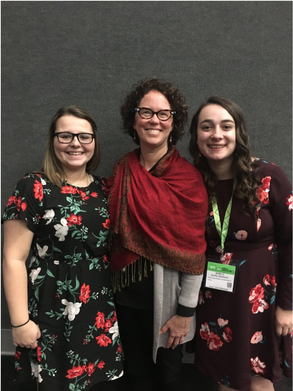 2018 NCTE Annual Convention, Houston 2018 NCTE Annual Convention, Houston Winning the 2018 Bonnie Campbell Hill National Literacy Leader Award for my clinical work with preservice teachers in our local schools allowed me to support the attendance of two university students, Emily and Allicia, at the 2018 NCTE conference in Houston. They were astounded by the warm welcome they received at the CLA breakfast that year, the sessions they attended, and of course the free books signed by authors. To say they were gobsmacked would be accurate. Upon our return from the conference, they shared their experience in a student gathering on campus with others where it was well received and created a buzz in the teacher education program for quite a time afterwards. They graduated in the Spring of 2019, accepting their first teaching positions in nearby schools. Because of the positive experience they had at the 2018 conference, they attended NCTE 2019 in Baltimore as seasoned conference attendees, focusing in on their current classroom needs and of course gathering books for their classroom libraries. After starting a YA book club in the summer of 2019, we continued to meet together virtually throughout the pandemic--sometimes for our book club that grew out of the initial NCTE experience, and other times to navigate classroom or learner challenges. When we met a few weeks ago, I asked them about the initial experience of attending NCTE with me. Emily commented that the experience opened her eyes to the importance of making connections within the profession at a national level. Allicia added that she never would have considered going to something like NCTE if she had not gone with me. It made her dream bigger as a teacher and as a person. They both agreed they will attend again. I am so grateful that winning this award allowed me to plant and nurture the seeds of professional involvement for these teachers in the early stages of their careers. I hope there are opportunities for me to continue this in the future with other preservice teachers. Catching Up with Quintin: A Bonnie Campbell Hill Literacy Leader Award Update BY QUINTIN BOSTIC 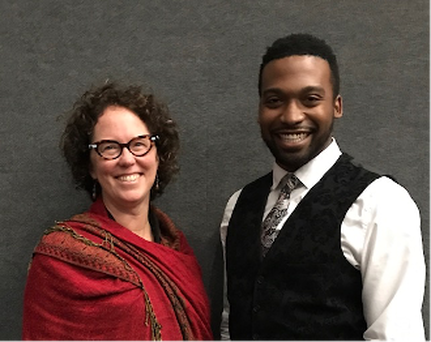 Kathryn Will (left) & Quintin Bostic (right) Kathryn Will (left) & Quintin Bostic (right) When he won the award in 2018, Quintin was preparing to teach his first course in elementary writing instruction for undergraduate preservice teachers. Although his time in the Ph.D. program is coming to an end, the doors to opportunities are just beginning to open. Shortly after receiving the Bonnie Campbell Hill Literacy Leader Award, Quintin began to implement his PLC series. The 3-day series supported teacher trainers and teachers in using various strategies to have critical conversations with students through picture books in their classrooms. The professional development program addressed topics like #BlackLivesMatter, LGBTQIA+ families, multilingualism, varying abilities, and more. Attendees of the professional development supported students from preschool to third grade in an inner-city school district in Atlanta, Georgia. A major highlight from the project was that because it was so well received, the project was further funded through a local agency for the continued support of teachers in the local area. Through the Bonnie Campbell Hill Literacy Leader Award, not only was Quintin able to implement the PLC series, but he was also able to attend the annual convention of the National Council of Teachers of English (NCTE) in Houston, Texas in 2018, attend the Children’s Literature Assembly’s breakfast, and attend the all-attendee event that featured author Sharon Draper. Because of the award, Quintin has gained a platform that has helped him to continue to advance in his academic career.  Quintin Bostic Quintin Bostic Quintin is currently wrapping up his Ph.D. in Early Childhood and Elementary Education at Georgia State University. His research focuses on how race, racism, and power are communicated through the text and visual imagery in children’s picturebooks. Additionally, in 2020, Quintin was named co-chair of the National Association for Professional Development Schools (NAPDS) Anti-Racism Committee. The association – which provides professional development, advocacy, and support for school-university partnerships – first established the Anti-Racism Committee in response to racial violence in 2020. As co-chair, Bostic will work to foster a culture of equity and inclusion within the association, and in the communities it supports; create and implement anti-racist policies, practices, and systems; and recommend and implement tools and approaches for continued reflection and progress. “Our goal is to address racism by providing teachers and community partners with the necessary resources to do so,” Bostic said. “These resources vary, ranging from trainings to resources, that can help challenge and overcome racist ideologies that are embedded throughout society.” He also just started a new career with Teaching Lab, in which is serves as a Partnerships Manager. Quintin is beyond thankful to Bonnie Campbell Hill, her family, the Children’s Literature Assembly, and everyone who makes this award possible. “There are so many people, like me, who would have never had the opportunity to have so many experiences without the support, love and care of people like the Bonnie Campbell Hill Award family. I am so appreciative, and I look forward to seeing what amazing things will come out of this award in the future.” Kathryn Will is an Assistant Professor of Literacy at the University of Maine Farmington (@KWsLitCrew). She is passionate about sharing the power of children's literature with her students. She is one of the 2018 Bonnie Campbell Hill Award recipients, a member of the 2019 Notables Committee, and current chair of the Notables Committee.
Quintin Bostic is a Ph.D. Candidate at Georgia State University. He is also Partnerships Manager at Teaching Lab and co-Chair of the NAPDS Antiracism Committee. His personal website is https://drquintinbostic.com. Editorial Note: Check out our April 6 Post about the Bonnie Campbell Hill Literacy Leader award and look out for another award recipient update post next week. If you are interested in applying for this year's award, visit the Bonnie Campbell Hill Literacy Leader Award page for the application details. BY DONNA SABIS-BURNS
We are obligated to educate our youth with a clear lens and to teach the richness of realistic, authentic, and contemporary literature for children and young adults. We need to promote books where Indigenous characters are up front and visible, not hidden or pushed aside. We want to highlight in a bold, distinguishable manner characters and stories that unveil and promote the beauty of diverse literature written/illustrated by and for Native Nations (also called Indigenous people and used interchangeably here when the specific Nation is not known), and all other marginalized groups.
The movements of #OwnVoices and #WeNeedDiverseBooks have elevated the bar by offering a deeper focus and expanded landscape for celebrating the intricacies that Native storytelling brings to the table. Much too often, books featuring Indigenous people are only pulled off the shelf in October (Columbus) and November (Thanksgiving/Native Heritage Month). Well, it is March/April and I am pleased to share with you some resources you may want to check out and bookmark this spring to break that cycle. This blog post features a few rich and informative web pages, the American Indian Literature Awards (AILA), a shout out to an award-winning #OwnVoices book, and other informative and fun resources that highlight the resilience, authenticity, and beauty in literature through a kaleidoscope of traditions representative of the vast diversity across Indian Country. Native Cultural LinksHeartdrum
What is impressive about this site is its refreshing approach to much-needed stories about Indigenous, contemporary young heroes and heroines. These heartfelt accounts are reflective of the many different Nations of a modern United States and Canada. This is a breath of fresh air because it does not perpetuate the notion that Indigenous peoples are not around anymore. Do not get me wrong, there is a definite need for authentic, truthful history stories of Native Nations, but it is truly wonderful to be able to share a good story about real time people in real time situations in a modern setting. This is a new resource that is just getting off the ground and it already has some exquisite stories to share with you.
Oyate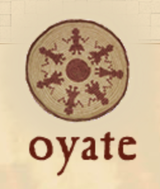
Oyate.org is a small but mighty Indigenous organization working to share the life and histories of Indigenous people with the utmost level of honesty and integrity. This is a resource that serves as a portal into the past and is reflective of today’s society where diverse, #ownvoices books are most necessary. Oyate, appropriately named after the Dakota word for “people,” believes that the world is a healthier place when there is a better understanding and respect for one another and when history is truthfully acknowledged. They aim to distribute literature and learning materials by Indigenous authors and illustrators, provide critical evaluation of books and curricula with Indigenous themes, and offer workshops “Teaching Respect for Native Peoples.” They also have a small resource center and reference library that can be very useful for any educator or parent (or youth for that matter). Since the pandemic, the store portion of the site is temporarily not working at full capacity, but there are many other fine choices for you to peruse and enjoy.
American Indians in Children’s Literature 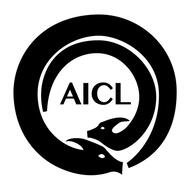
We cannot mention websites about literature featuring Indigenous people without showcasing the American Indians in Literature (AICL) website. Established by Dr. Debbie Reese of Nambé Pueblo, and later joined by Dr. Jean Mendoza as co-editor, the AICL website provides a critical analysis of the presence of Indigenous peoples in children's and young adult books and so much more. This website is like walking into a bakery with so many wonderful choices it is hard to decide what to try first. It has been around for 15 years and is most certainly more than just a place to find a list of best books. You can discover Indigenous authors and illustrators in the Photo Gallery section, or maybe you’d rather learn tips for creating instructional materials featuring different Native nations. You can even research what books you should NOT be sharing out there. It is really a gem of a resource.
Book Award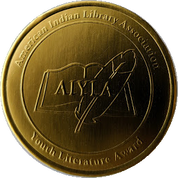
AILA Youth Literature Award
Did you know there is an award specifically for literature featuring Indigenous people? Since 2006, the American Indian Library Association (AILA) biennially considers the finest writing and illustrations by Indigenous peoples of North America for the AILA Youth Literature Award. AILA identifies and honors works that “present Indigenous North American peoples in the fullness of their humanity.” Winners and Honor Books are selected in the categories: Best Picture Book, Best Middle Grade Book, and Best Young Adult Book. If you ever need a resource for choosing quality literature, make sure you visit the American Indian Youth Literature Award web page. For those not familiar with this organization, AILA is an affiliate of the American Library Association and it is devoted to disseminating information about Indigenous cultures and languages to the library community and beyond. Check out the video for the 2020 Award winners. Did you know?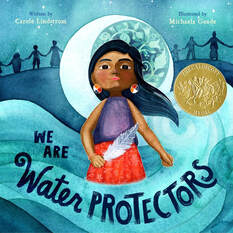
Caldecott Winner
Congratulations to illustrator Michaela Goade (Tlingit) for her 2021 Caldecott Award winning book, We are Water Protectors (2020), authored by Carole Lindstrom (Turtle Mountain Band of Ojibwe). Goade is the very first Indigenous winner of this prestigious award. With Earth Day around the corner, this would be a fabulous book to share. There is even a We are Water Protectors Activity Kit!
Read Native 2021 Reading Challenge
The “American Indian Library Association invites you to participate in the inaugural reading challenge. With this challenge we support and recognize our Indigenous authors, scientists, legislators, storytellers, and creators throughout the year, not just during the national Native American Heritage month.” Here is a fun reading challenge to engage readers of all ages. Final Words
Throughout the year, find and read books and publications by and about Native Americans; visit tribal websites; search peer reviewed scholarly journals; visit Native-owned bookstores; and check with Native librarians for the best sources for learning more about Native Nations and Indigenous people around the world.
Donna Sabis-Burns, Ph.D., an enrolled citizen of the Upper Mohawk-Turtle Clan, is a Group Leader in the Office of Indian Education at the U.S. Department of Education* in Washington, D.C. She is a Board Member (2020-2022) with the Children's Literature Assembly, Co-Chair of the 2021 CLA Breakfast meeting (NCTE), and Co-Chair of the Diversity, Equity and Inclusivity Committee at CLA.
*The views expressed herein do not necessarily represent the positions or policies of the U.S. Department of Education. No official endorsement by the U.S. Department of Education of any product, commodity, service, or enterprise mentioned herein is intended or should be inferred.
|
Authors:
|
CLA
About CLA
|
Journal of Children's Literature
Write for JCL
|
ResourcesCLA-sponsored NCTE Position Statements
|
Members-Only Content
CLA Video Library
|
© COPYRIGHT 2018.
ALL RIGHTS RESERVED |

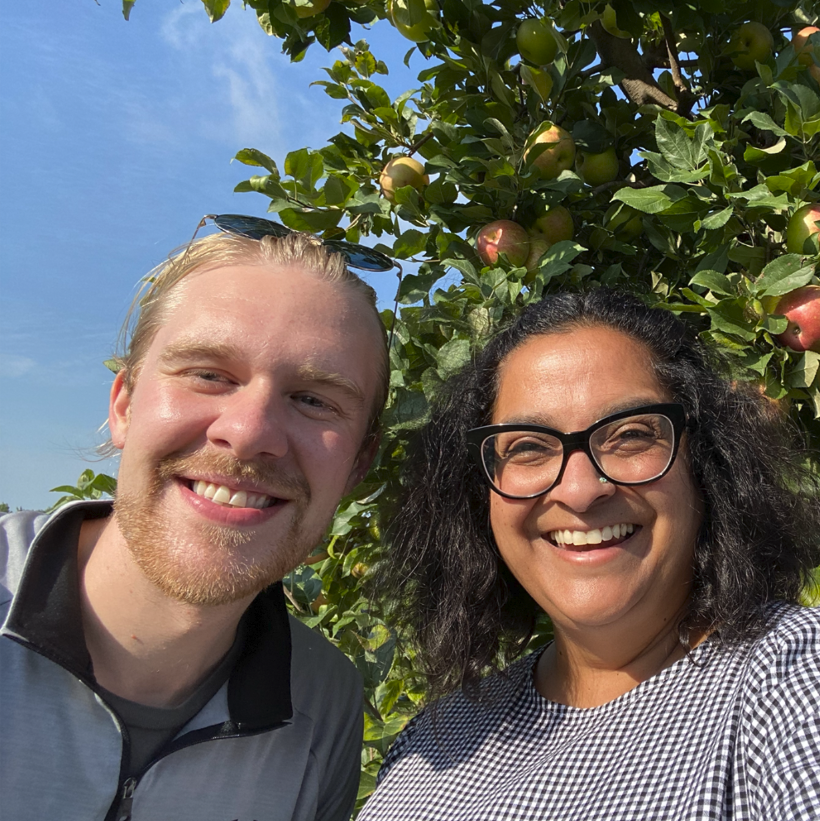
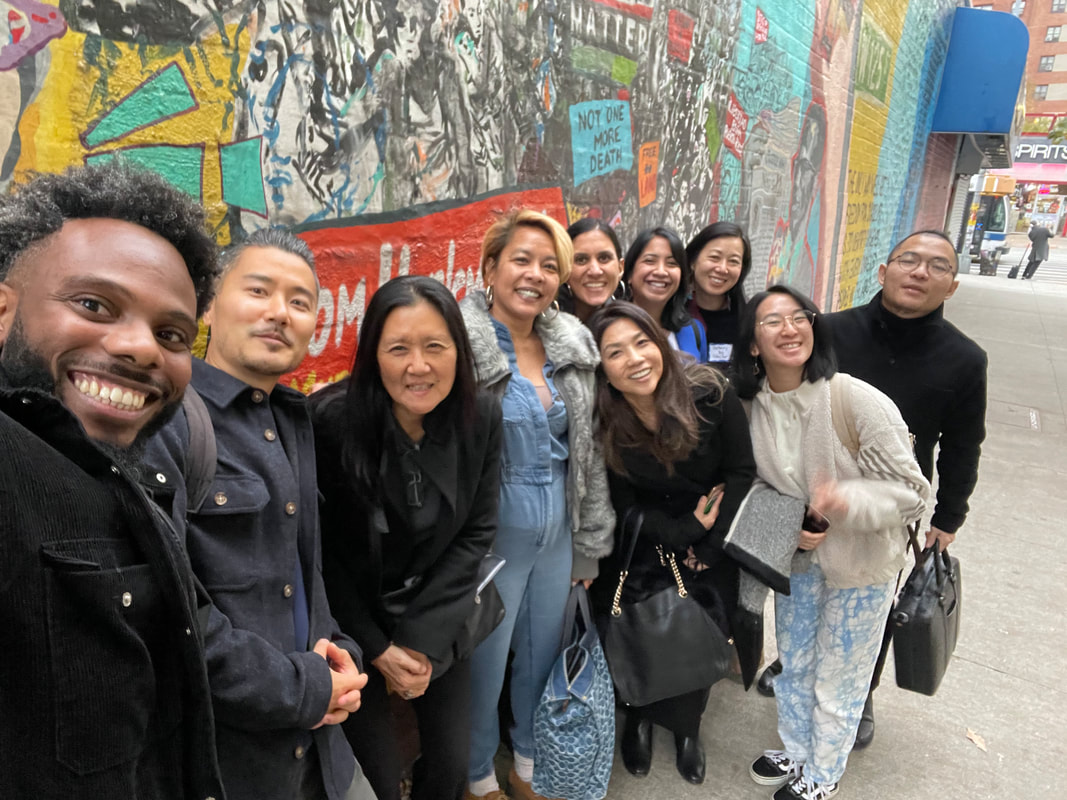
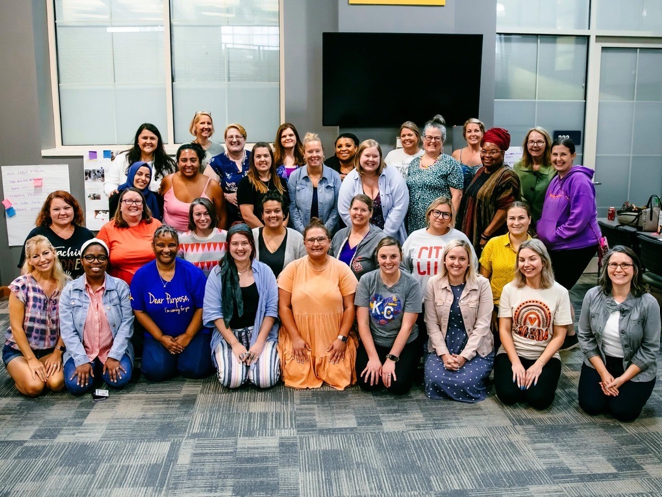
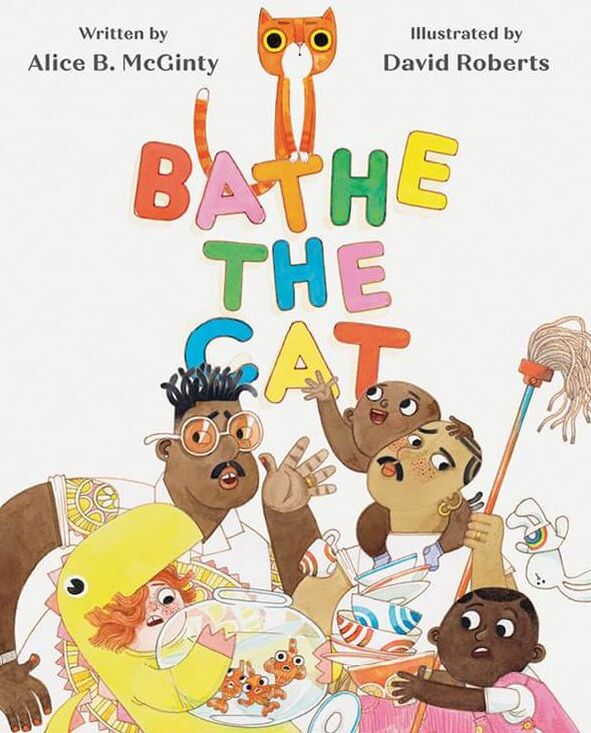
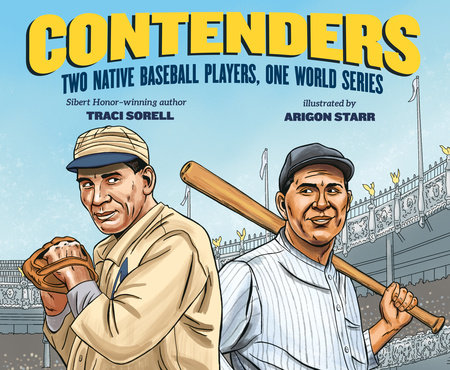
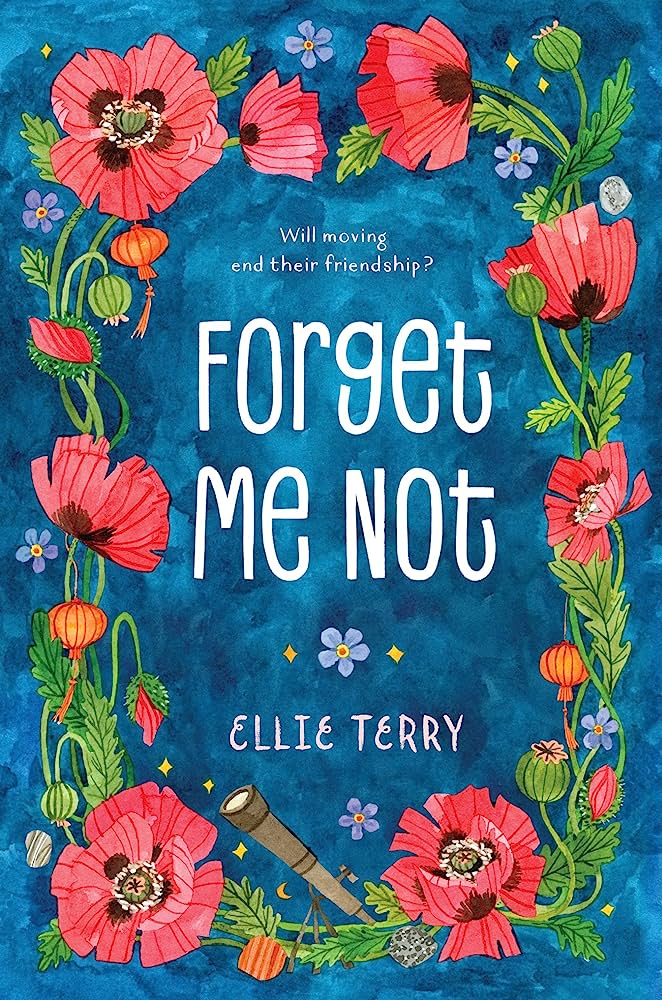
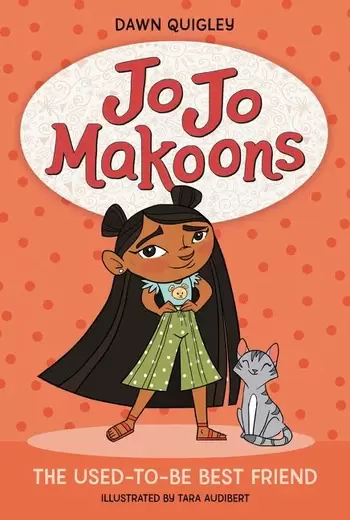
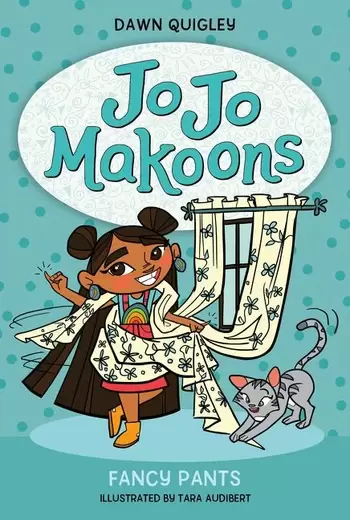
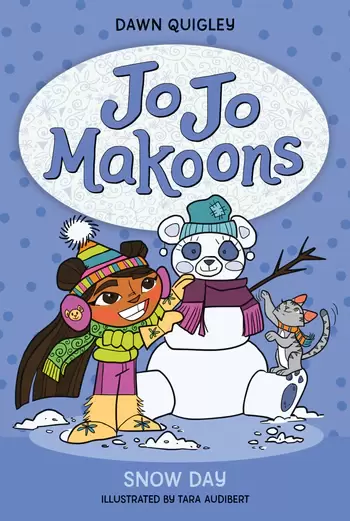
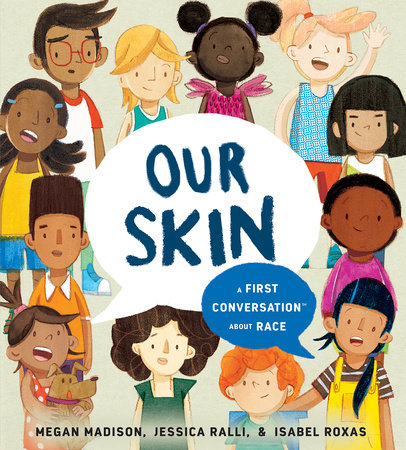
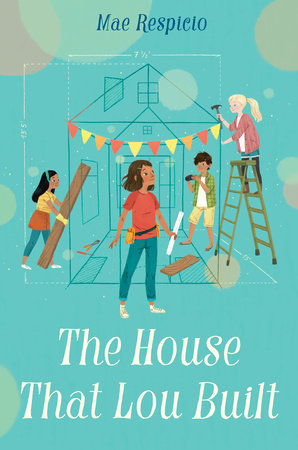
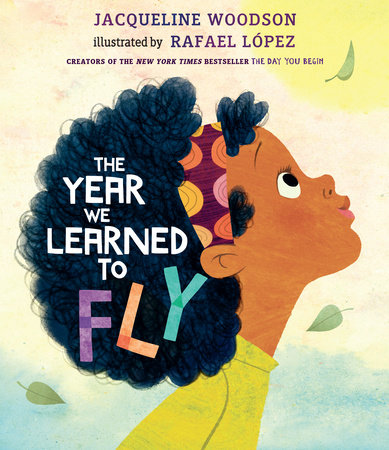
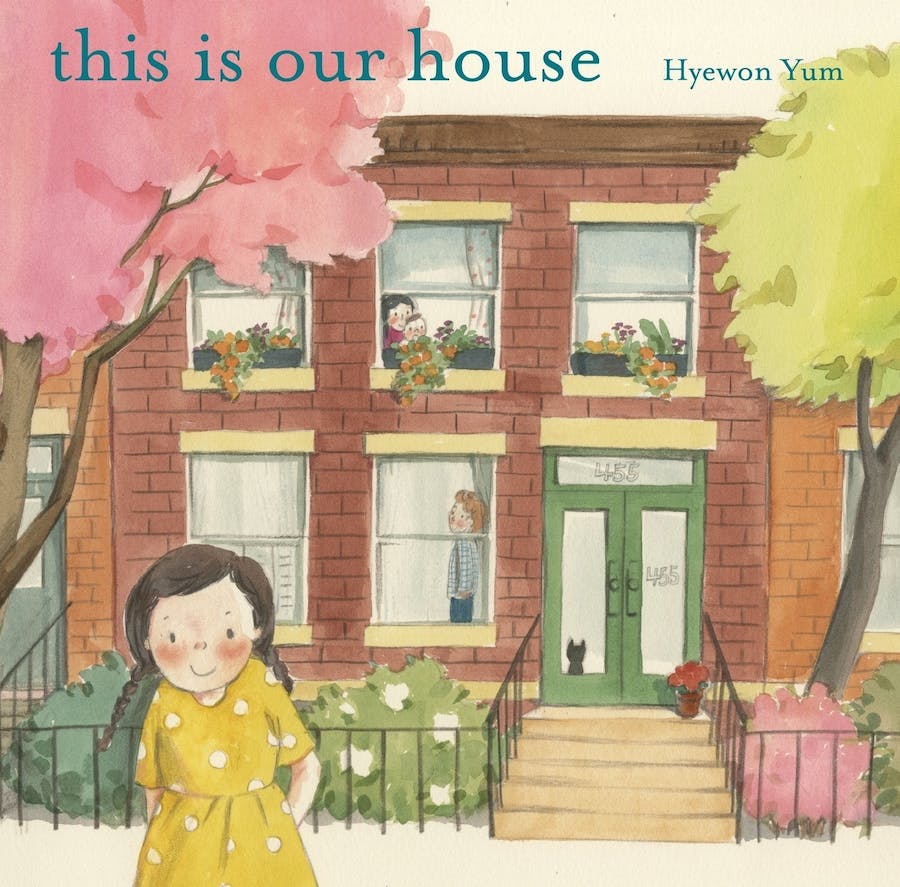
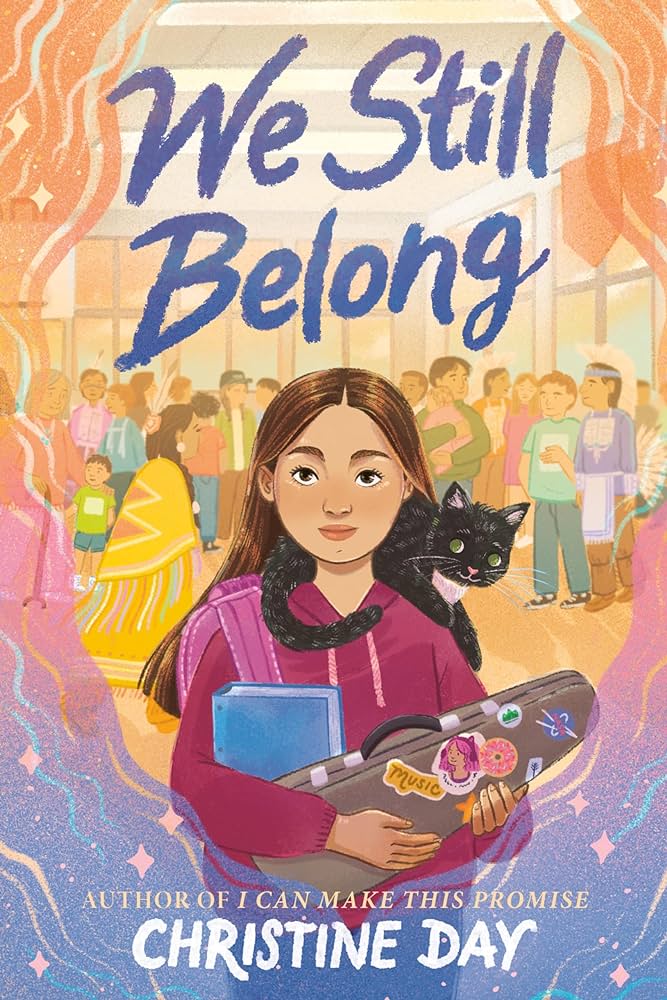
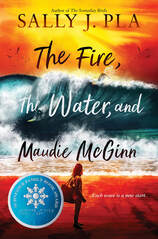
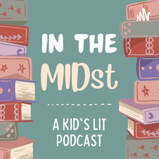
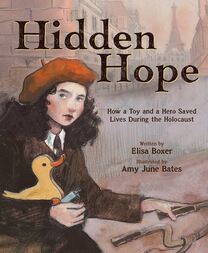
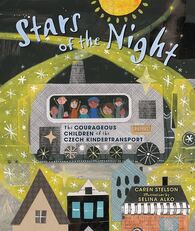
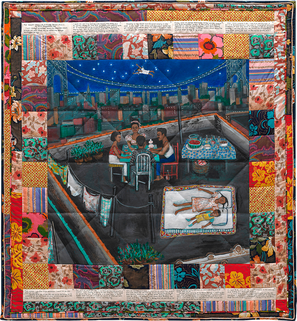
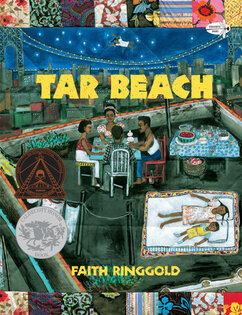
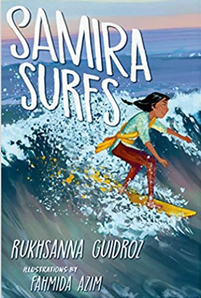
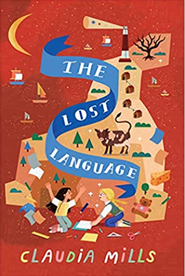
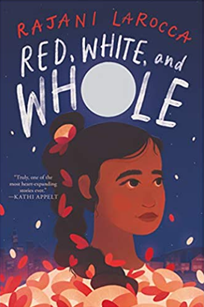
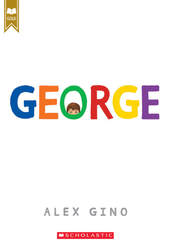
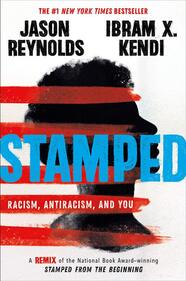
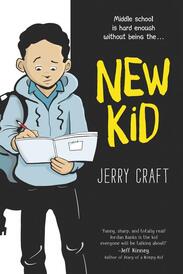
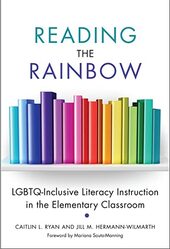
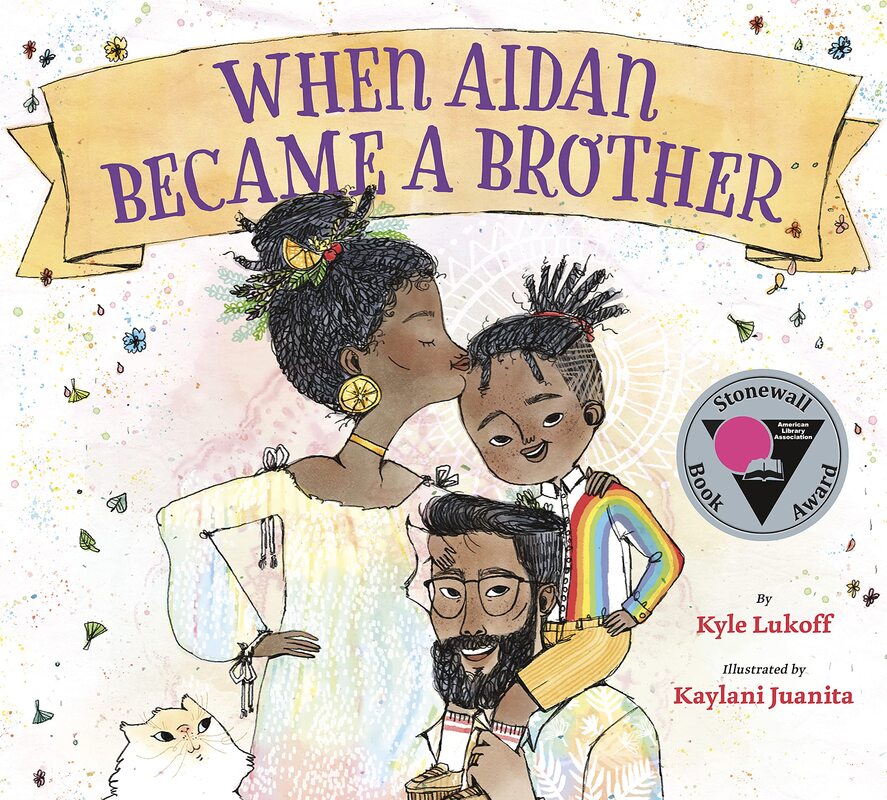
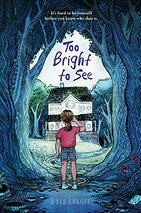
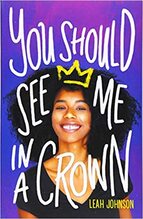
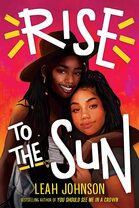
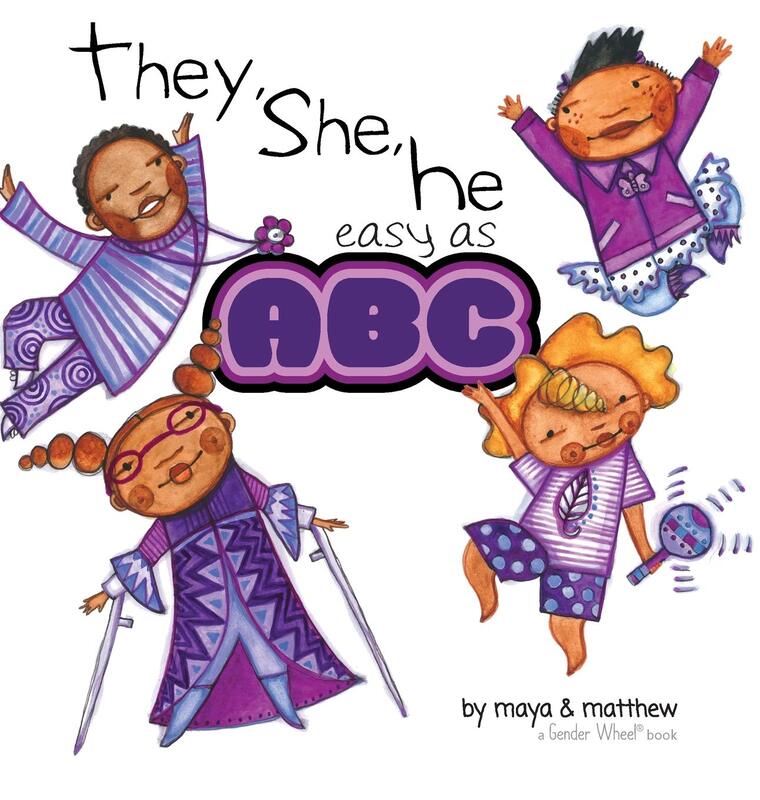
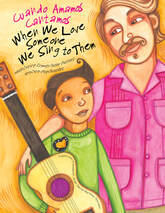
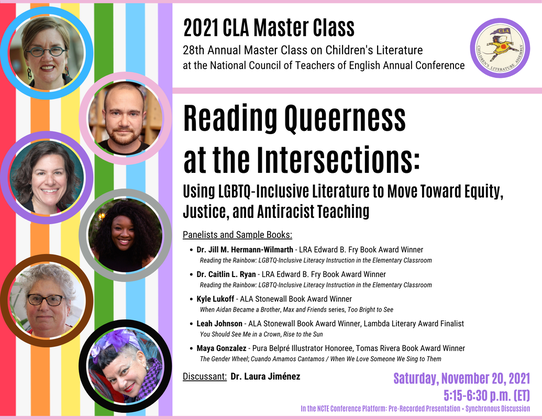

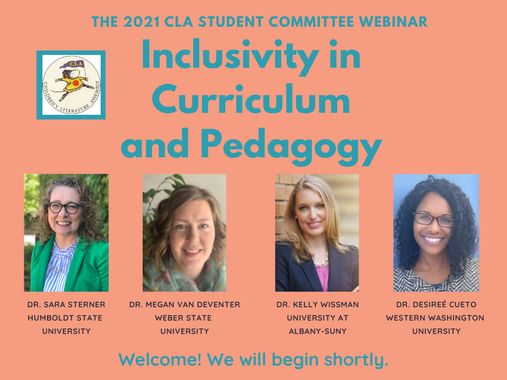
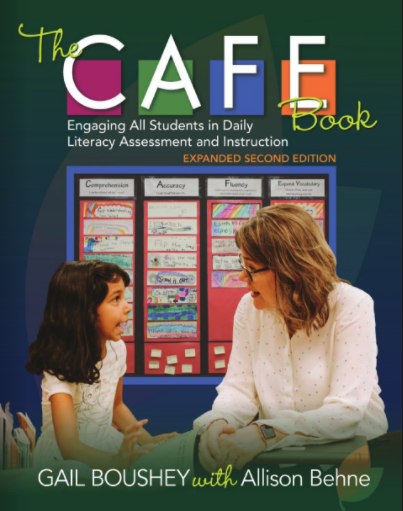
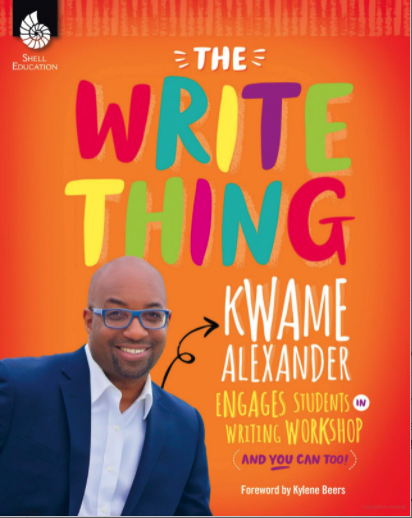
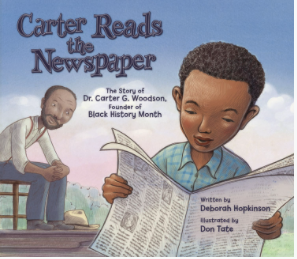
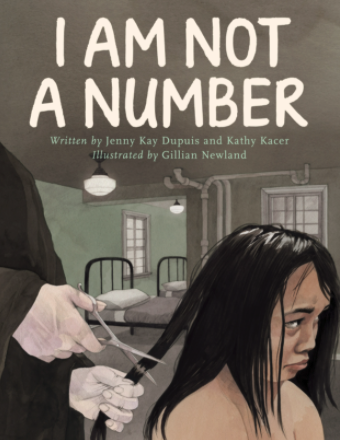
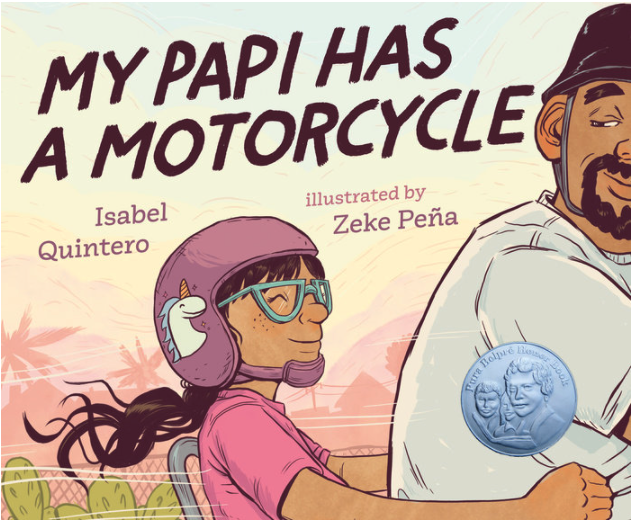
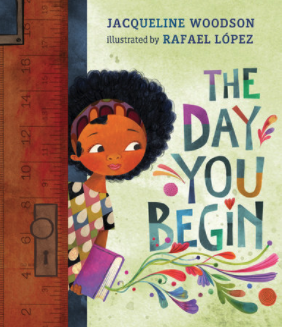
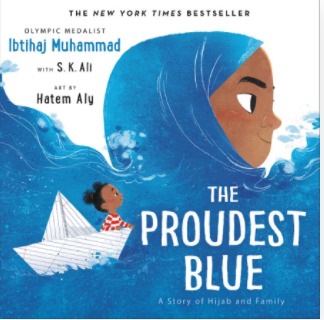
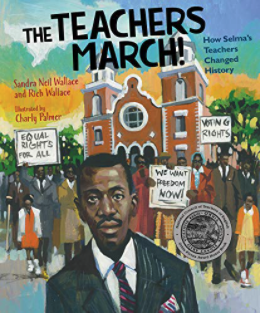
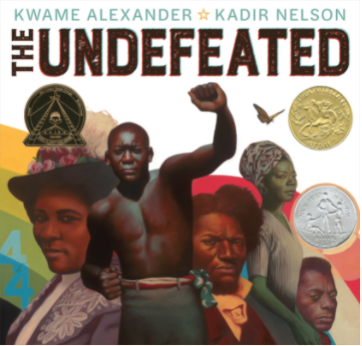
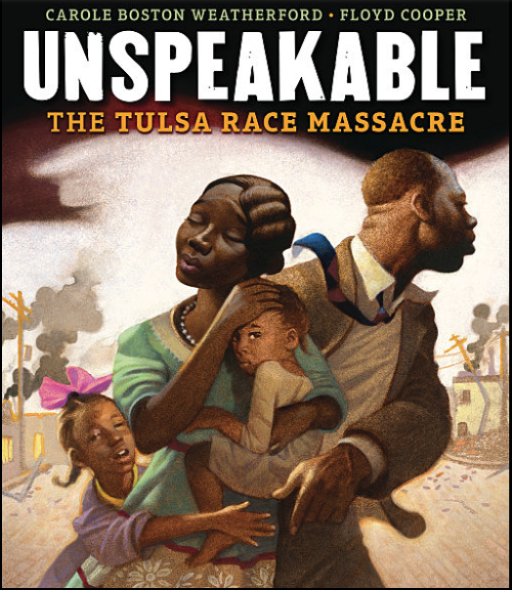
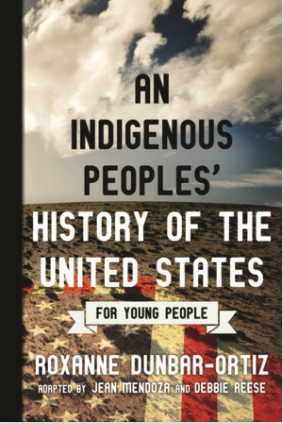
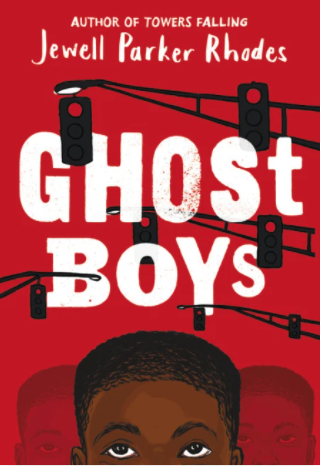
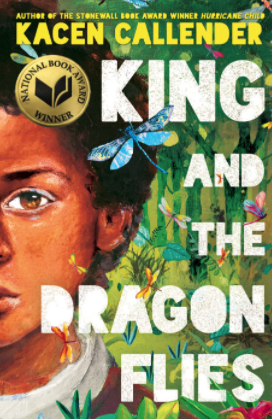
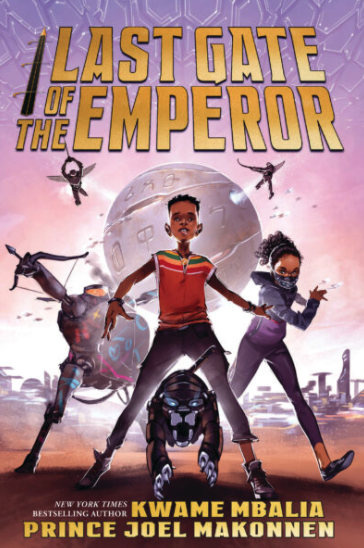
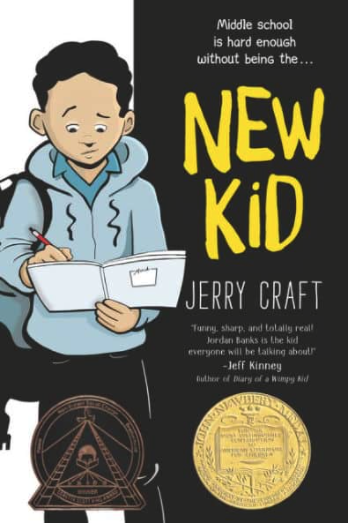
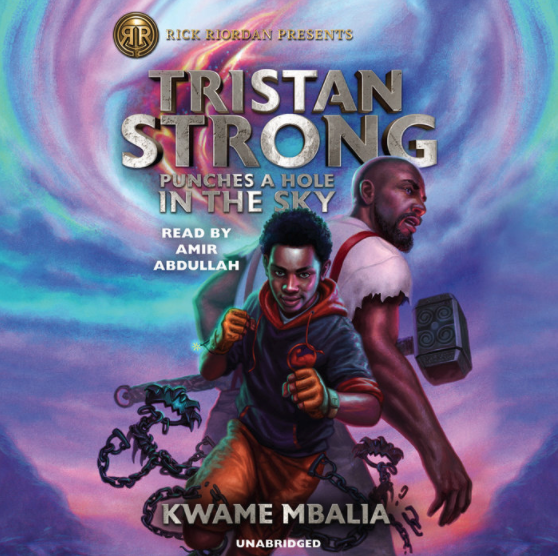
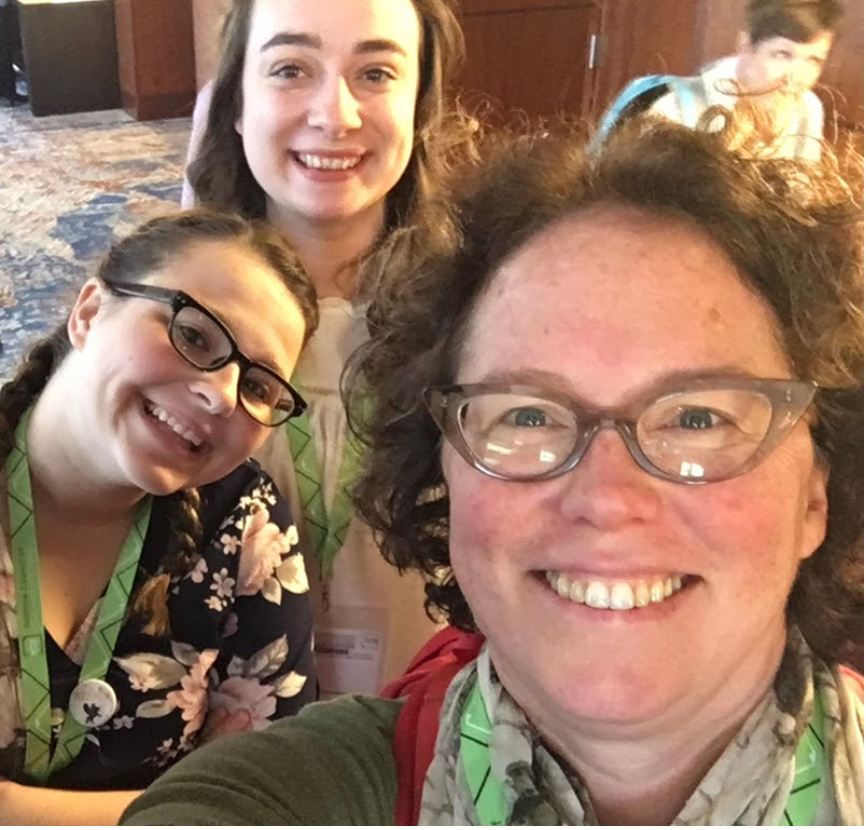
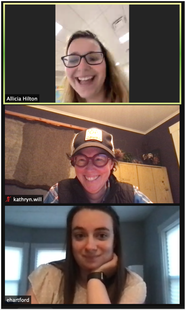
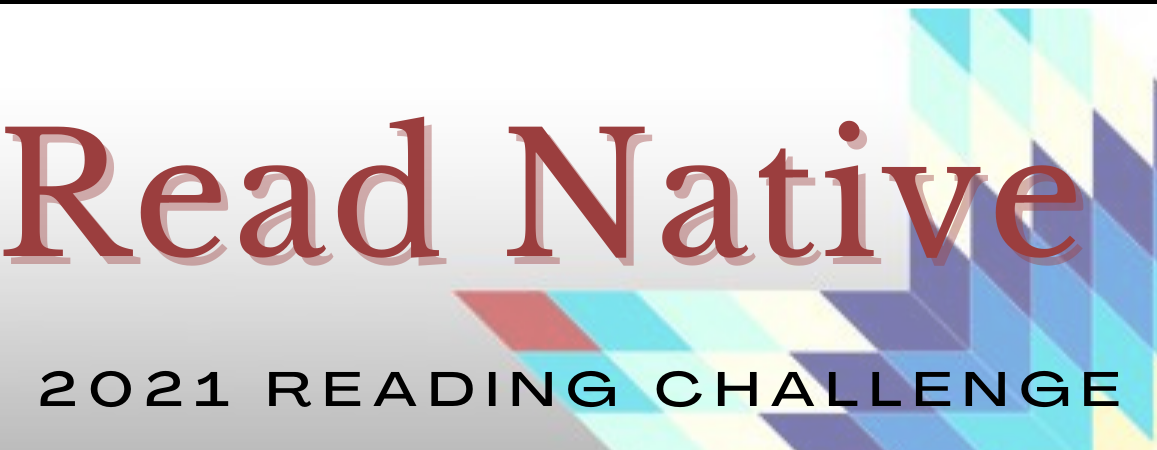
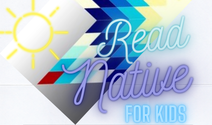
 RSS Feed
RSS Feed